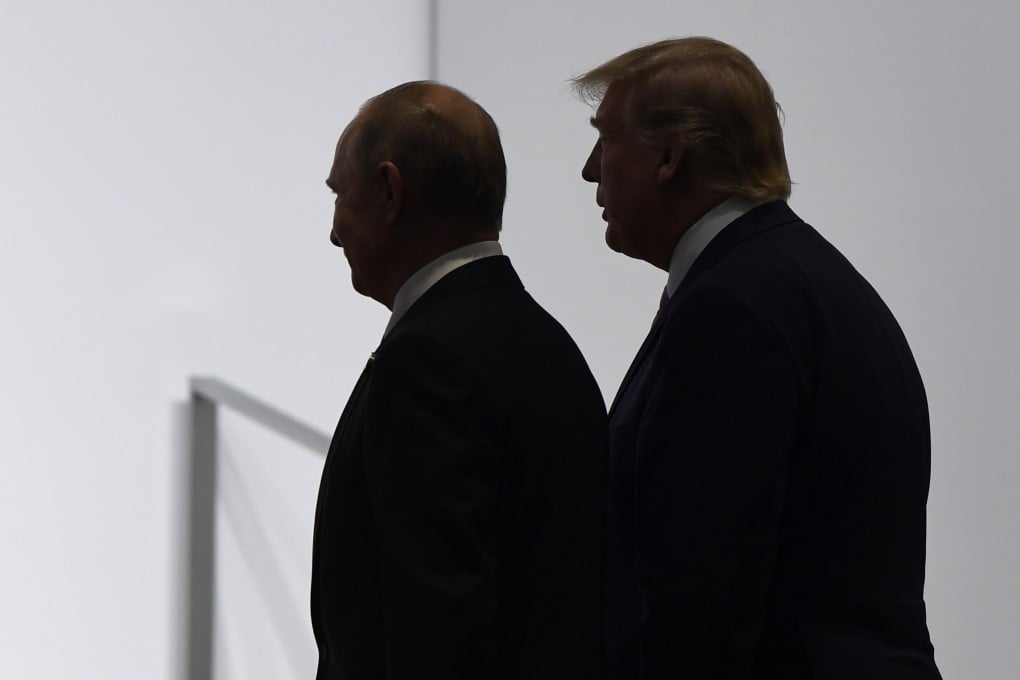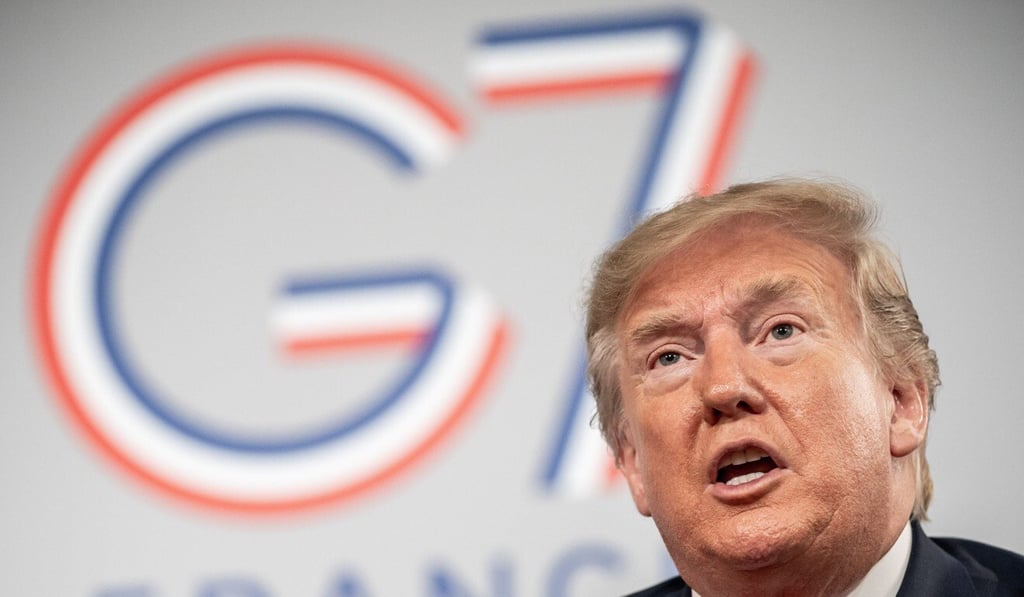How Donald Trump’s efforts to readmit Russia to G7 could backfire and drive Moscow closer to Beijing
- US’s President’s olive branch was seen as effort to drive a wedge between China and Russia, but observers say it may prove counterproductive
- Vladimir Putin’s 20-year rule has seen relations with China warm and even the lure of seeing sanctions lifted may not be enough to reverse the trend

Donald Trump’s latest effort to readmit Russia to the Group of 7 is likely to tip the delicate balance between Moscow, Beijing and Washington, but so far it has received a chilly response from traditional US allies and some diplomatic observers believe it may have the opposite effect to that intended.
The US President’s olive branch was widely seen as an attempt to drive a wedge between China and Russia, but analysts warn that any realignment of the relationship between the three powers may only create more geopolitical uncertainty in the post-coronavirus world.
“As the pandemic crisis deepens in the US, Trump desperately needs to deflect attention, especially in the face of an uphill battle for re-election,” said Ma Zhengang, a former Chinese ambassador to Britain.
“By turning to Russia despite their acrimonious ties, it takes aim directly at China. There is little doubt that the US will be more focused on China, but it is still an open question if and how far Washington can achieve its goals,” said Ma, a former president of the China Institute of International Studies, a government-linked think tank in Beijing.

Last Friday Trump hit out at China’s plans to impose a national security law in Hong Kong, threatening retaliation, and criticised Beijing’s initial handling of the pandemic.